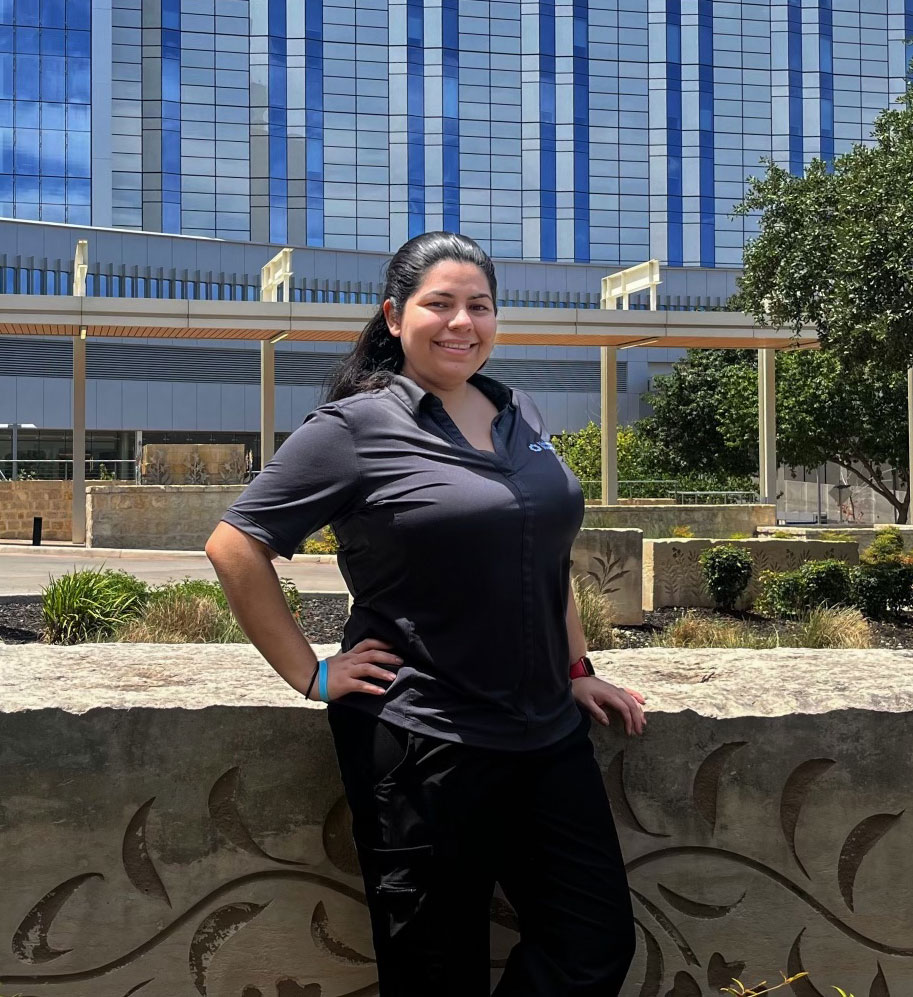
SEPTEMBER 10, 2024 — When Joey Mukherjee ’95 enrolled in UTSA’s undergraduate computer science program in 1990, he recognized the university’s high-quality education. UTSA, ahead of its time, had identified that computer science was slated to be the next in-demand industry, and its growing program was on the rise.
Immediately following Mukherjee’s graduation from UTSA, he was offered a position at Southwest Research Institute (SwRI®) in San Antonio. He now works primarily in space research doing data analysis. He’s worked on projects such as New Horizons, which flew by Pluto in 2015, and Juno, which passed by Jupiter in 2016, and the upcoming Europa Clipper mission going to Europa, a moon of Jupiter, in October of 2024.
Mukherjee has worked for SwRI for 29 years and serves as an institute computer scientist, SwRI’s senior-most position for computer scientists.
 Joey Mukherjee
Joey Mukherjee“I’ve been using much of my degree as part of my job on a daily basis,” Mukherjee said. “I write software for the web, desktop and server to help scientists do better space research. In a nutshell, there are many satellites launched into space for doing research into ‘something.’ In some cases, we send satellites to other planets or moons, and in others they orbit Earth looking at something. They all return back data of some sort.”
Mukherjee plays an instrumental role in retrieving and deciphering data for scientists to analyze. Working closely with engineers and space researchers, the UTSA alumnus translates the data into useful information. Additionally, he develops websites to help scientists plan points of exploration for satellites.
Since Mukherjee’s time as an undergraduate at UTSA, his major has become one of UTSA’s most popular degree programs. Preliminary data shows UTSA attracting 3,971 undergraduate students alone to computer science and cybersecurity this fall.
Other top programs prepare students for careers in health and bioscience, financial services, manufacturing and aerospace, and the public sector and government.
As UTSA grows, it’s intentionally building degree programs to help meet Texas’s projected workforce needs.
Preliminary data this fall 2024 also reveals that biology and psychology top UTSA’s most popular undergraduate degree programs. A projected total of 4,416 students are enrolled in these programs this semester.
A strong commitment to its students made UTSA a perfect fit for Yelitza Ramirez ’16, ’19, an alumna who earned a biology degree. In her eyes, this dedication set UTSA apart from other institutions. The university’s proximity to home was also a plus.
 Yelitza Ramirez
Yelitza RamirezRamirez’s academic career at UTSA started in 2013 when she began her pursuit of a B.S. in biology. Upon graduating, she set her sights on her master's in the same field, which she completed at UTSA in 2019.
“UTSA inspired me to become active with the community and engage,” Ramirez said. “The university instilled a sense of duty in me to apply my degree and knowledge to help others in need.”
Students coming to UTSA gain a competitive edge. While at UTSA, Ramirez had the opportunity to highlight her research in poster presentations and publish a first-author manuscript. She has been able to translate the skills she acquired in the laboratory to her career in public health, increasing her capacity to write proposals and present them to her supervisors while they served on the COVID-19 Response Team of San Antonio.
Ramirez now helps coordinate clinical trials at University Health. Her strong foundation in science and her experience in research continues to play a vital role in ensuring all members of her team are well-informed, despite their varying professional expertise.
“I act as the bridge between the research, doctors and patients,” Ramirez said.
UTSA Today is produced by University Communications and Marketing, the official news source of The University of Texas at San Antonio. Send your feedback to news@utsa.edu. Keep up-to-date on UTSA news by visiting UTSA Today. Connect with UTSA online at Facebook, Twitter, Youtube and Instagram.
Move In To COLFA is strongly recommended for new students in COLFA. It gives you the chance to learn about the Student Success Center, campus resources and meet new friends!
Academic Classroom: Lecture Hall (MH 2.01.10,) McKinney Humanities BldgWe invite you to join us for Birds Up! Downtown, an exciting welcome back event designed to connect students with the different departments at the Downtown Campus. Students will have the opportunity to learn about some of the departments on campus, gain access to different resources, and collect some giveaways!
Bill Miller PlazaJoin us for an intimate evening of cocktails, conversation, and culinary inspiration with Pati Jinich, Emmy-nominated chef and James Beard Award-winning author. Enjoy light bites and signature drinks in the warm, modern setting of Mezquite as Pati connects with guests over her passion for Mexican cuisine and storytelling.
Mezquite Restaurant in Pullman Market, 221 Newell Ave., San Antonio 78215From inspired courses to thoughtful pairings and a rich sense of community, the Ven a Comer Signature Dinner is a night of shared meals, shared stories, and unforgettable flavor.
Stable Hall (Pear Brewery), 307 Pearl Pkwy, San Antonio 78215Come and celebrate this year's homecoming at the Downtown Campus with food, games, giveaways, music, and more. We look forward to seeing your Roadrunner Spirit!
Bill Miller PlazaThe University of Texas at San Antonio is dedicated to the advancement of knowledge through research and discovery, teaching and learning, community engagement and public service. As an institution of access and excellence, UTSA embraces multicultural traditions and serves as a center for intellectual and creative resources as well as a catalyst for socioeconomic development and the commercialization of intellectual property - for Texas, the nation and the world.
To be a premier public research university, providing access to educational excellence and preparing citizen leaders for the global environment.
We encourage an environment of dialogue and discovery, where integrity, excellence, respect, collaboration and innovation are fostered.